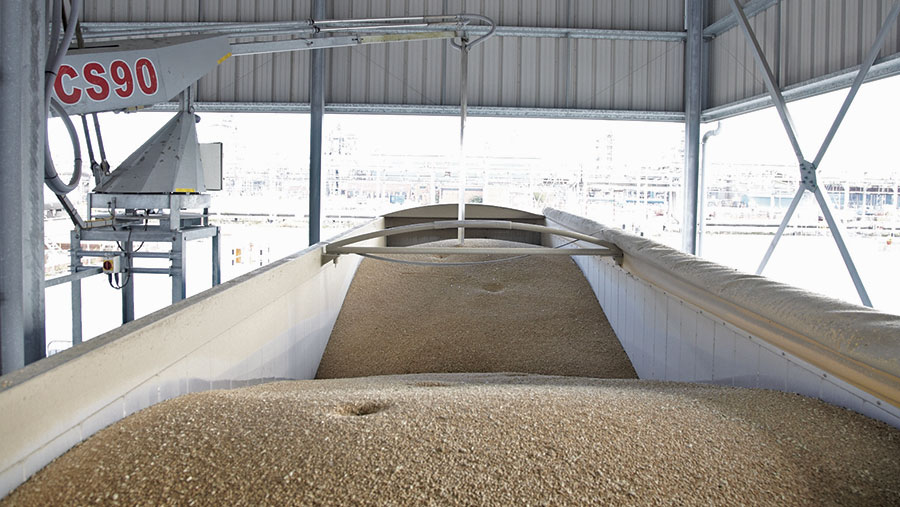Vivergo closure causes serious concerns for wheat growers
 © Vivergo Fuels
© Vivergo Fuels Vivergo’s decision to close its Hull bioethanol plant for “the foreseeable future” raises serious concerns for wheat growers.
The £350m biofuel plant is one of two in the UK and processes up to 1.1m tonnes of feed wheat a year from farms in the North East.
The demand from these two large customers, which have the potential to use between 12% and 15% of the UK’s annual wheat production, is an upward influence on wheat prices.
Farmgate values in their catchment areas are between £2/t and £13/t higher than in other regions.
See also: Threat to food crop-based biofuels grows
Tight market
In a tight wheat market where there were until recently many customers short of wheat, the impact of the Vivergo closure announcement on prices has been limited.
Midweek, prices in its catchment area had fallen by up to £2/tonne on the week but this was in a relatively quiet market which was already expecting a maintenance closure, said traders. Of more concern was the length of the closure.
Vivergo Fuels said it was forced to take the production facility offline due to a drop in bioethanol prices this autumn.
“While the plant is offline, we are taking the opportunity to bring forward and extend our annual plant maintenance work in order to maintain employment levels,” said a statement. “We will closely monitor the market ahead of any plant restarting.”
Government inaction
Maintenance closures are not unexpected for such plants but as well as a fall in bioethanol prices, the companies are concerned at government inaction on its aim of increasing the proportion of road fuel from renewable sources.
Road fuels must include an average of 4.75% renewable fuels. Following a consultation last year, it is policy to increase this to 9.75% but the legislation to make this happen has yet to be passed.
It was originally expected that this would go through in November but everything has been snarled up by Brexit, said Grant Pearson, commercial director at Ensus, the Teesside bioethanol plant owned by German company CropEnergies.
Ensus has been back in production since July last year following a closure of more than a year.
Mr Pearson said it was important to get some clarity and certainty. “The government needs to be more vocal in its support (for the move to 9.75%) then the retailers will be more supportive about it,” he said.
He was concerned that if the legislation did not go through by the end of January then political complications, including the possibility of another general election, could further delay the move.
Renewables in road fuel
Standard unleaded fuel contains up to 5% ethanol and can be used in any petrol-engined car without problems or the need for modification.
Raising the rate to 9.75% is part of the move to E10 fuel, which is made up of 90% regular unleaded petrol and 10% ethanol.
Vivergo says all cars since March 2016 are fully optimised for E10
However motoring organisations, including the RAC, have voiced concern over E10 – warning that it is not suitable for all cars, especially older vehicles. Drivers of cars registered before 2002 are advised not to use E10, as problems have been reported, says the RAC.
